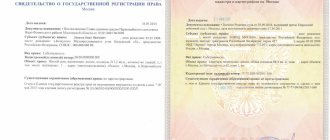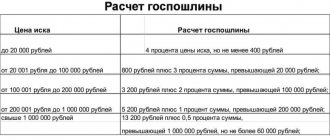Concept of property and public ownership
Property is the most important economic category. This concept means the appropriation of the means of production and the results of labor. Appropriation means the right to use and dispose of a piece of property at the discretion of the owner. Inseparable from the right to appropriate property in legal practice, the term alienation is considered, which means the loss of ownership of a particular subject of economic relations.
Owners can be not only individuals, but also enterprises, government agencies and even several states at the same time. An object of property is considered to be everything that can be appropriated - objects, real estate, natural resources, vehicles, money, etc.
There are several types of property:
- private property;
- collective ownership;
- state property;
- partnership ownership;
- public property, etc.
Private property is a form of ownership, use and disposal of an object in which all rights are concentrated in the hands of a private person - an individual or a legal entity.
Public property is called property in which a certain object (property) is owned by all members of society, a collective or a community, while having equal rights to own it and use it.
Special forms of ownership
The issue of classifying property by form is quite complex. There are two interrelated types of classification - by the form of ownership and by the form of assignment of the object. It is customary to distinguish three main forms of ownership:
- Individual form - here we are talking about personal property, the results of one’s own labor and the labor economy;
- Collective form - in this case we mean cooperatives, joint-stock companies, collective and rental enterprises, etc.;
- State form - this means national and municipal property.
Our country also provides for foreign and mixed forms of ownership. The latter presupposes the possibility of participation of Russian and foreign capital in any ratio and with different distribution of the share of participation.
Original ownership
A citizen can become the legal owner first of all by taking advantage of the initial right of ownership, which arises in the following situations:
- Creating a new object of property - this means that if you produce any object from your own materials, it, like the materials, is your property. For example, the construction of a building.
- Collecting publicly available things - an example of such things could be mushrooms, fruits, berries, brushwood, collected in the forest and as a result becoming your indisputable property.
- Profits and things obtained from the use of one's own property - an example is the birth of livestock. If a cow, for example, belongs to you, then the calves born by that cow also become part of your property.
- By way of acquisitive prescription , there is a law establishing that if a citizen uses certain property for a certain period of time, after a while it becomes his possession. Thus, for real estate the statute of limitations for possession is 15 years, while for movable property it is 5 years.
Calculation of state duty
When filing a claim for recognition of property rights, you need to remember the need to pay the state fee:
Its size is directly dependent on the cost of the claim. Calculation of the payment amount in accordance with sub. 1 clause 1 art. 333.19 of the Tax Code of the Russian Federation is given below.
- If the claim price is up to 20,000 rubles. The state duty is 4% of this amount, but not less than 400 rubles.
- If the claim price is from 20,000 to 100,000 rubles. you need to pay 800 rubles. plus 3% of the amount over 20,000 rubles.
- If the price of the claim is from 100,000 to 200,000 rubles, then the duty is 3,200 rubles. plus 2% of the amount above 100,000 rubles.
- If the value of the claim is more than 200,000 rubles, but less than one million, the fee will be 5,200 rubles. plus 1% of the amount over 200,000 rubles.
- If the value of the claim is over one million, the fee is 13,200 rubles. plus 0.5% of the amount over one million rubles, but not more than 60,000 rubles.
When determining the amount of state duty, you need to correctly calculate the value of the property. In accordance with clause 9, part 1, art. 91 of the Code of Civil Procedure of the Russian Federation, it is determined based on the results of the inventory assessment: the value used in the calculations cannot be lower than the value established based on the results of the inventory. If such an assessment has not been carried out, the minimum value of the object is determined based on the amount specified in the insurance contract, and for organizations - based on its book value.
Settlement agreement
Issues relating to disputes over the recognition of property rights fall into the category of cases that require an attempt at pre-trial settlement. Before filing a claim in court, the injured party is asked to directly submit its demands to the defendant in writing. This quite often makes it possible to resolve a dispute under a preliminary agreement without resorting to court and significantly saving time, money and effort.
The law does not provide clear rules for drawing up a document with requirements for the defendant. It is only important to take into account that the plaintiff must set out his claims and demands in writing, supported by relevant regulatory legal acts of legislation confirming the validity of his appeal. If the parties to the dispute manage to reach a common opinion, a pre-trial agreement is drawn up and the case is resolved without opening a trial. If the issue of recognition of property rights cannot be resolved directly between the parties to the dispute, the injured party must go to court, be sure to provide a copy of the pre-trial appeal to the defendant.
Time limits within which it is possible to appeal to the courts
All plaintiffs face statutes of limitations for filing lawsuits. In world practice in civil law cases, the statute of limitations is calculated for three years. During this time, you need to resolve your issue.
If a claim was filed during this period, the statute of limitations is interrupted and is not counted while the issue is being considered by the court. If the statute of limitations has passed, then it is possible to restore them by filing a claim with the arbitration court, but the grounds for this must be strictly compelling.
How to draw up a statement of claim to the court for recognition of ownership rights
A detailed list of information that should be indicated in the claim is described in Article 131 of the Code of Civil Procedure.
It is important to indicate:
- The name of the court in which the case will be heard
- Full name and passport details of the plaintiff and defendant,
- Indicate the plaintiff’s demands in the form “The defendant undertakes to transfer the housing property into the plaintiff’s possession...”
- Provide all the details and circumstances of the case (real estate price, area, articles of the Code of Civil Procedure under which the case is taking place, the period required for transfer),
- Describe all documents attached to the case,
- Describe evidence of ownership of property,
- Be sure to include the plaintiff's signature at the end.
Before sending a document, you need to check it with a lawyer.
Rights approval results
The result in cases with recognition of property rights is the receipt of an appropriate court decision and a certificate from the state register of real estate. Due to the fact that, by a court decision, a specific residential area becomes the property of the applicant, the latter can use it at his own discretion: sell, donate, bequeath, use for registration at the place of residence, and so on. In addition, property can become collateral or the basis for obtaining loans.
In order for the court to take into account all the plaintiff’s demands, and the decision to best meet the applicants’ expectations, use the help of leading lawyers from our panel. Contact us by phone to schedule a consultation and get answers to any questions you may have.
List of documents for judicial intervention
In order to initiate legal proceedings for recognition of ownership rights, it is first necessary to correctly draw up a statement of claim. It is important to understand that the application will be considered only if there are serious grounds to believe that the plaintiff’s rights have been violated. To confirm this, you will have to attach the following package of documents to the claim:
- statement of claim and its copy;
- receipt of payment of state duty;
- a document confirming that the purchase of property took place, if ownership was obtained in this way;
- documents confirming the fact of donation;
- certificate of inheritance, if the property was received in this way;
- receipts, invoices and statements of expenses for operation, repairs, etc. in relation to the subject of the dispute;
- confirmation of tax payment;
- for real estate, BTI passport and privatization certificate, etc.
Receipt for payment of state duty
In order to count on a positive court decision, the plaintiff must collect the maximum amount of documentary evidence that his property rights have been violated.
Terms of recognition
In accordance with article number 154 of the country’s Civil Procedure Code, disputes in this category are considered by the court within up to two months from the date of receipt of the statement of claim. This means that the court will confirm ownership within approximately two months. Additionally, it will take up to 12 days to register with Rosreestr (the deadlines are indicated for Moscow - up to 30 days for the Moscow region). Thus, the total duration of the process will be about 3-4 months on average.
If the developer actively “holds on” to the apartment or agencies, investors, and so on pose obstacles to meeting the requirements, consideration of the recognition case may be delayed. We advise our clients not to worry - the vast majority of problems remain completely solvable. Ultimately, the court will confirm the rights of the actual owner to the apartment, and in connection with the recognition of the rights to the property, the applicant will receive an official certificate and living space at his full disposal.
Please note that the speed of consideration of cases regarding rights to property - apartments - is determined depending on the court and the extent of practice in relation to a particular object. If the court already has practice in legal proceedings on a specific new building, then the time it takes for the court to make a decision is significantly reduced. The court always considers the first cases longer.
Recognition of property rights in court
If a citizen’s ownership of any property is disputed by third parties, it has been illegally taken by another person, or there are obstacles to exercising his right, the citizen has the right to file a lawsuit to force recognition of his own rights. Recognition of ownership of any property is regulated by the Civil Code of the Russian Federation and is defined as the right of a person to freely dispose of his property solely in his own interests.
Article 218 of the Civil Code of the Russian Federation is responsible for the recognition of property rights:
1. The right of ownership to a new thing manufactured or created by a person for himself in compliance with the law and other legal acts is acquired by this person. The right of ownership to fruits, products, income received as a result of the use of property is acquired on the grounds provided for in Article 136 of this Code.
2. The right of ownership to property that has an owner may be acquired by another person on the basis of a contract of sale, exchange, donation or other transaction for the alienation of this property.
In the event of the death of a citizen, the ownership of his property is inherited by other persons in accordance with a will or law. In case of reorganization of a legal entity, the ownership of the property belonging to it passes to legal entities - legal successors of the reorganized legal entity.
3. In the cases and in the manner provided for by this Code, a person may acquire ownership rights to property that does not have an owner, to property whose owner is unknown, or to property that the owner has abandoned or to which he has lost the right of ownership on other grounds, provided by law.
4. A member of a housing, housing-construction, dacha, garage or other consumer cooperative, other persons entitled to share savings who have fully paid their share contribution for an apartment, dacha, garage, or other premises provided to these persons by the cooperative, acquire the right of ownership to the specified property.
The difficulty of recognizing the right of ownership of property in court lies in the fact that theoretically such decisions are made quite often, but implementing them in practice can be quite difficult. To understand the registration procedure, it is necessary to separately consider the main directions of judicial practice in the field of recognizing the ownership right of the owner of the property:
- Recognition of ownership of a land plot . The vast majority of court cases in this area are related to the recognition of ownership of plots that were transferred into the possession of citizens before 1991 without proper documentation. In this case, the citizen has used this property for a long time, but cannot officially dispose of it and conduct transactions. When such a need arises, the owner should go to court and provide any evidence of his ownership of the property. Not only documentary evidence of the transfer of land, but also the testimony of neighbors or representatives of a dacha cooperative, etc. can be considered as strong evidence. Decisions in this case are usually made in favor of the plaintiff.
- Recognition of ownership of real estate . Very often in court you have to prove your right to use, own and dispose of real estate. You will have to provide all available documentary and witness evidence of the acquisition and maintenance of the house/apartment. Such cases most often arise during the joint purchase of housing or when purchasing unfinished real estate from an unscrupulous developer.
- Recognition of property rights by inheritance under a will . An heir can take ownership either by will or on legal grounds of kinship. Often the procedure requires judicial intervention, since the heirs cannot determine equal shares among themselves or consider the will invalid. In this case, recognition of ownership occurs in court.
- Recognition of ownership of ownerless property . This refers to real estate that does not have an owner-owner. Such real estate does not include unauthorized construction, land and other natural resources. Consequently, ownerless property is considered to be an apartment, a residential building, or a garage. To take possession of such real estate, you need to know for sure that the owner is absent, have documents confirming the right of ownership, as well as witnesses confirming your right to such property. Consult with an attorney before going to trial.
And:
Recognition of ownership rights to shared construction (according to DDU). The ownership right of a participant in shared construction is determined by Part 1 of Art. 16 of the Law of December 30, 2004 N 214-FZ.
1. The right of ownership of a participant in shared construction to a shared construction object after the transfer of the shared construction object to the participant in shared construction in accordance with Article 8 of this Federal Law is subject to state registration in the manner established by Federal Law of July 13, 2015 N 218-FZ “On State Registration of Real Estate” "
(Part 1 as amended by Federal Law dated July 3, 2016 N 304-FZ)
(see text in the previous edition)
2 - 4. Lost force as of January 1, 2021. — Federal Law of July 3, 2016 N 304-FZ.
(see text in the previous edition)
5. A participant in shared ownership, when the right of ownership to a shared construction object arises, simultaneously acquires a share in the right of ownership of the common property in an apartment building, which cannot be alienated or transferred separately from the right of ownership to the shared construction object. State registration of the emergence of ownership of a shared construction project is at the same time state registration of the inextricably linked right of common shared ownership of common property.
Here, the consumer is often faced with a situation involving the bankruptcy of the developer and other force majeure circumstances, when the house is not built, but he wants to return the money. In such cases, the following claim must be filed with the courts:
- Claim for recognition of ownership of a disputed property;
- A claim for recognition of the right of ownership to a share in the right of common shared ownership of an apartment building, corresponding to the object of shared construction - an apartment;
- Recognition of ownership of an unfinished construction project.
The decision of the arbitration or arbitration court will be considered fair.
Procedure for filing a claim for recognition of property rights
To recognize the right to own, use and dispose of an apartment by going to court, the plaintiff must file a claim in the prescribed form. A statement of claim requires a consistent and competent description of the realities of the current situation and the personal position of the plaintiff. The statement of claim also provides for a separate pleading part, where the applicant will have to list personal demands on the judge.
A statement of claim for recognition of property rights is accompanied by a standard set of documents that are in one way or another related to a specific case. You can clarify the list of documents for filing a claim directly in court or in consultation with specialists of the Moscow Municipal Collegium.
The claim is filed in court, determined taking into account the location of the apartment. In order to clarify which court a particular area belongs to, you can use the recommendations of a lawyer or information on the relevant websites. Submission of an application can occur by contacting the office, during a face-to-face meeting with a judge, or as part of a court expedition.
The set of documents that accompanies the statement of claim requires the preparation of at least three or more copies. This is due to the requirement that each party receive a complete set of documents. Thus, the judge receives one set, the defendant receives the second, and the third remains with the applicant. If there are several defendants, each of them must receive a separate set of documents, including a copy of the statement of claim.
The filing of documents should result in a mark on the plaintiff's copy by court personnel. This mark includes information about the date and number of the claim, and also serves as confirmation that the documents were received. After receiving the documents, the court sets a date and time for the first hearing. This information is transmitted to each participant in the process, usually in postal format. Given the likelihood of a summons being delayed in the mail, some applicants personally monitor the hearing scheduling process through regular calls to the clerk's office.
Features for an apartment in a new building
Due to the fact that in our country the issue of purchasing their own housing is particularly acute, citizens often buy apartments in buildings that have not yet been put into operation. At first glance, buying real estate in a new building does not seem difficult at all, because you just need to draw up a purchase and sale agreement correctly. But in reality, getting ownership of an apartment can be much more difficult. The fact is that by the time of the pre-announced delivery date of the project, construction may not be completed, or the developer may refuse to transfer the apartment into the ownership of the shareholder. In this case, you should go to court to force recognition of ownership of the apartment.
If there are no difficulties in purchasing and registering an apartment, registration of the property should take place at the Federal Reserve Office (Federal Registration Service). If it is not possible to obtain ownership of an apartment by law, you should contact the local district or city court with a statement of claim. Litigation should also be initiated in cases where official registration is delayed for more than 2 years. In order for the court to consider your claim, it is advisable to attempt a pre-trial settlement. This process involves putting your grievances and demands in writing and submitting them to the defendant. If the issue cannot be resolved without a trial, a copy of this document should be attached to the statement of claim. Also, along with the claim, all documents confirming ownership of the apartment should be submitted to the court.
An example from judicial practice
After the new building was put into operation, all owners of apartments in it began the procedure for official registration of real estate. However, the local administration refused to assign a postal code to the built house, which impedes the registration procedure. The developer himself recommended that the owners file a class action lawsuit to recognize their ownership rights to the apartments. Having attached the entire package of necessary documents, the plaintiffs’ demands were satisfied, and they assumed rights under the court’s decision. The owners did not have to additionally contact the Federal Reserve System to obtain the appropriate certificate, since the court decision has legal force.
Sample statement of claim
When filing a claim, you must comply with the legal requirements for the design and writing of this document. of claim for recognition of ownership of the apartment contains the following points :
- address and exact name of the court to which the claim is filed;
- information about the plaintiff and defendant: for individuals, complete and accurate passport data (if necessary, a link to a copy of the identity card is provided), registration address and telephone number; for organizations - legal address, details, name and person responsible for resolving the controversial issue (full name, position);
- title of the document: “Statement of claim for recognition of property rights____”, and then the basis for recognition is given: in the order of privatization, in the order of inheritance, etc.;
- claim price. The state fee payable for filing the application is indicated. In some cases, the full cost of the disputed apartment is also required;
- information about the disputed apartment: exact address, total area, area of residential premises, number of persons registered in the apartment;
- the essence of the claims, indicating everything that confirms the ownership rights to the property: documents, payment invoices, witness statements, etc. The exact requirements are indicated - “Based on the above, in accordance with (listing of relevant legislative acts), I ask you to recognize the right ownership of the apartment (the exact address is indicated) for (full name of the plaintiff).";
- a list of documents attached to the claim for ownership of the apartment;
- date (day, month, year) of filing the claim, signature of the plaintiff.
The document looks similar regardless of the nature of the claim being filed. The listed documents, the identity of the defendant and the reasons for confirming the relevant rights change. But the general structure of the statement remains unchanged.
List of documents
The documents used to support a plaintiff's claims vary from case to case. The list of documents should look something like this:
- a document confirming property rights (differs depending on the type of claim - inheritance, privatization, division of jointly acquired property, etc.). If the required documents are not available, they must be obtained from the relevant authorities, or an adequate replacement must be found (consultation with a lawyer is recommended for each specific case);
- receipts for payment of fees for the apartment (light bills, property taxes, etc.) - certify the fact of ownership of the housing as your own;
- a copy of the plaintiff’s passport (you must have the original with you);
- cadastral passport for living space, issued by the BTI;
- any other documents that can confirm the rights of the plaintiff.
Payment of state duty
Claims of a property nature are paid based on the value of the object of the dispute. Therefore, any claims relating to the recognition of ownership of an apartment fall into this category. At the same time, if there is no document with a specified price (purchase and sale agreement, equity participation agreement, etc.), the cadastral value of the object is established. It is not recommended to try to lower the price to reduce the state duty - there are fines and penalties provided for just such a case. The duty is calculated as follows:
- the cost of housing ranges from 200,001 to 1,000,000 rubles. In this case, the state duty is calculated according to the following principle: 1 percent of the amount exceeding 200,000 rubles is added to 5,200 rubles (this amount remains unchanged) (200,000 rubles are subtracted from the cost of the apartment and multiplied by 0.01);
- the cost of housing exceeds 1,000,000 rubles. Here the plaintiff pays 13,200 rubles (the amount remains unchanged), to which is added 0.5 percent of the amount exceeding 1,000,000 rubles (1,000,000 rubles are subtracted from the cost of housing and the resulting figure is multiplied by 0.005). But there is a limitation - the duty cannot exceed 60,000 rubles.
Free legal consultation by phone:
8
Features for inheritance
In accordance with the law, the heir must enter into the right of inheritance within 6 months from the date of death of the testator. That. The limitation period is six months from the date of death of the testator. To enter into the right of inheritance, a citizen must submit a corresponding application to the notary's office, attaching to it the will of the deceased, if any, or a list of documents confirming the relationship with the testator. If for any reason the heir does not exercise his right within 6 months or a dispute arises between the heirs regarding the division of their shares, recognition of ownership of the inherited property can be done through the court.
Documents confirming relationship:
- Certificates issued by competent authorities upon request. For example, a certificate from the registry office;
- Entries in passports. For example, a record of children made in the parents’ passports;
- Extracts from information stored in archives with relevant content. Some archival documents contain information about the family ties of several individuals;
- Certificates issued by enterprises and organizations that have data on the presence of family ties;
- Certificates and other documents.
To begin legal proceedings in the case, the heir must file a claim in court and attach the maximum amount of documentary evidence of the fact of violation of his rights. In this case, the defendants can be any persons who violate the plaintiff’s rights to inheritance - other heirs, municipal organizations, government bodies, etc. The claim is filed at the place where the inheritance was opened. If during the trial the plaintiff manages to prove that he did not enter into inheritance rights due to ignorance of the death of the testator, illness or long absence from the country, city, or as a result of the criminal intentions of other heirs, his rights will be restored in court.
An example from judicial practice
Citizen R. died after long-term treatment for cancer. During his lifetime, he drew up a will, in which he indicated his son from his first marriage, living abroad, as the only heir. His second wife hid the fact of his father’s death from her son for six months, citing in telephone conversations his serious condition and inability to speak. As a result, the period for entering into inheritance under the will expired, and the spouse filed an application to accept the inheritance as a first-degree heir. A month later, the son of the deceased arrived and, having learned about his father’s death, went to the notary’s office to search for the will. With this document, he filed a lawsuit, providing testimony and documentary evidence of his absence from the country and ignorance of his father’s death. The court took into account the plaintiff's compelling circumstances and annulled the wife's rights to inheritance. Thus, the son was able, by a court decision, to recognize his rights to the property inherited under the will.
Sequence and documents
Registration of property rights through the court can be defined as a series of sequential actions, namely:
- Preparation of necessary documents;
- Competent drafting of a claim (either independently or drafted with the help of a legal specialist is allowed);
- Submitting papers to the court for consideration;
- Waiting for a court decision and its entry into legal force;
- State registration of proprietary rights in the territorial office of Rosreestr.
The list of required documents, in accordance with Article 132 of the Civil Procedure Code of the Russian Federation, includes:
Dear readers!
Our articles talk about typical ways to resolve legal issues, but each case is unique. If you want to find out how to solve your specific problem, please contact the online consultant form on the right →
It's fast and free!
Or call us by phone (24/7):
If you want to find out how to solve your particular problem, call us by phone. It's fast and free!
+7 Moscow,
Moscow region
+7 Saint Petersburg,
Leningrad region
+7 Regions
(free call for all regions of Russia)
- Technical and cadastral passport, plan;
- Papers on the basis of which a person received the right to real estate;
- Receipt of paid state duty;
- The plaintiff’s personal passport or passport and a notarized power of attorney of his representative;
- The act of acceptance and transfer of the apartment, if any.
It is necessary to submit a statement of claim with documents to the magistrate or district court at the location of the apartment.
Features for living space
The owner of the property always has priority for the right to use and dispose of residential premises. However, according to the law, members of his family, heirs, as well as persons with whom this fact was certified under a real estate lease agreement can also live in this premises. There are often cases when a citizen is deprived of his legal right to use premises. There are many examples of such situations. For example, after a divorce, the ex-husband legally seeks to evict his wife and children, or adult children sell the apartment of their elderly parents, leaving them homeless. In this case, the injured party can recognize their right to use the premises through the court.
As with any other dispute, in this case you should file a claim and pay the state fee. Next, to achieve this goal, you should collect as much documentary and witness evidence as possible about the legality of using the residential premises. Documents establishing a close relationship with the owner, receipts for payment of utilities, a real estate lease agreement, etc. can be provided as evidence.
An example from judicial practice
Citizen B. went to court to confirm her right to use the residential premises (private house) in which she lived with her common-law spouse for 25 years. They built this house together, which was confirmed by numerous witnesses. The court recognized the rights of the plaintiff and satisfied her demands. However, after some time, the children of the deceased from his first marriage claimed their rights to inherit real estate. As a result of the repeated court hearing, the common-law spouse lost her rights to use residential premises and was forced to move out of the house.
Causes of action
The grounds for filing a claim are evidence confirming the existence of circumstances to which the plaintiff refers when making his claims.
First of all, in court you will need to prove:
- Circumstances under which the right of ownership arose (clause 59 of the resolution of the Plenums of the Supreme Court and the Supreme Arbitration Court of the Russian Federation “On some issues...” dated April 29, 2010 No. 10/22). The evidence for this may be, for example, a resolution of a government agency approving a privatization plan, etc.
- The fact of ownership of property to which a third party has the right (clause 58 of resolution No. 10/22). Evidence in this case may include witness statements, tax returns, etc.
- Failure to register property rights in the manner prescribed by law due to inconsistencies, inaccuracies and errors in documents;
- Other circumstances that depend on the grounds for the emergence of ownership rights, relationships with the defendant, characteristics of the disputed property, etc.
The procedure for recognizing the right of use for unauthorized construction
Often, persons who have erected an unauthorized structure on a certain plot of land without first obtaining permits or in violation of construction techniques apply to the court with a demand to recognize the right of ownership. In this case, the court will be guided by Article 222 of the Civil Code of the Russian Federation. This legal act states that, first of all, ownership of the building will be granted directly to the owner of the land plot on which the new property is located.
Land plot
If you use the land under lease, sublease, or on the basis of gratuitous temporary possession, in order to legally go to court, you will first have to buy the land from a private owner or from the state. The court should also provide evidence that the new property was built at your expense, does not belong to third parties and was built taking into account sanitary and epidemiological requirements and safety standards.
Recognition of property rights is carried out in court, which requires the mandatory involvement of an experienced lawyer.
What to do with a mortgaged apartment?
Many apartments are purchased with a mortgage and it is not always clear who should be named as a defendant in a lawsuit. In some cases, there may be several parties to the process, including:
- financial institution;
- developer (based on the situation).
If the consideration of the case concerns a mortgaged apartment, registration of its ownership is possible, but with restrictive measures by order. This may continue until the mortgage is paid off in full. The restrictions can only be lifted through the court, but after the debt is paid off.
There are isolated situations when a part of the apartment was previously seized and it was not lifted in a timely manner. In this situation, the plaintiff may be alone and in the statement of claim ask to lift the arrest with subsequent recognition of his ownership of the home.
State duty amount
For different types of real estate, the amount of state duty is different:
- For an apartment on the secondary and primary market (in a new building), as well as for a house, the state duty will be 2,000 rubles,
- For a land plot for an apartment building or building - 100 rubles,
- For land for agriculture (garden plot) - 50 rubles,
- For a plot of land for building a house - 350 rubles,
- For an unfinished construction project (unfinished real estate property) - 100 rubles,
- For a non-residential property - 2,000 rubles,
- For a garage or garage box - 500 rubles.







